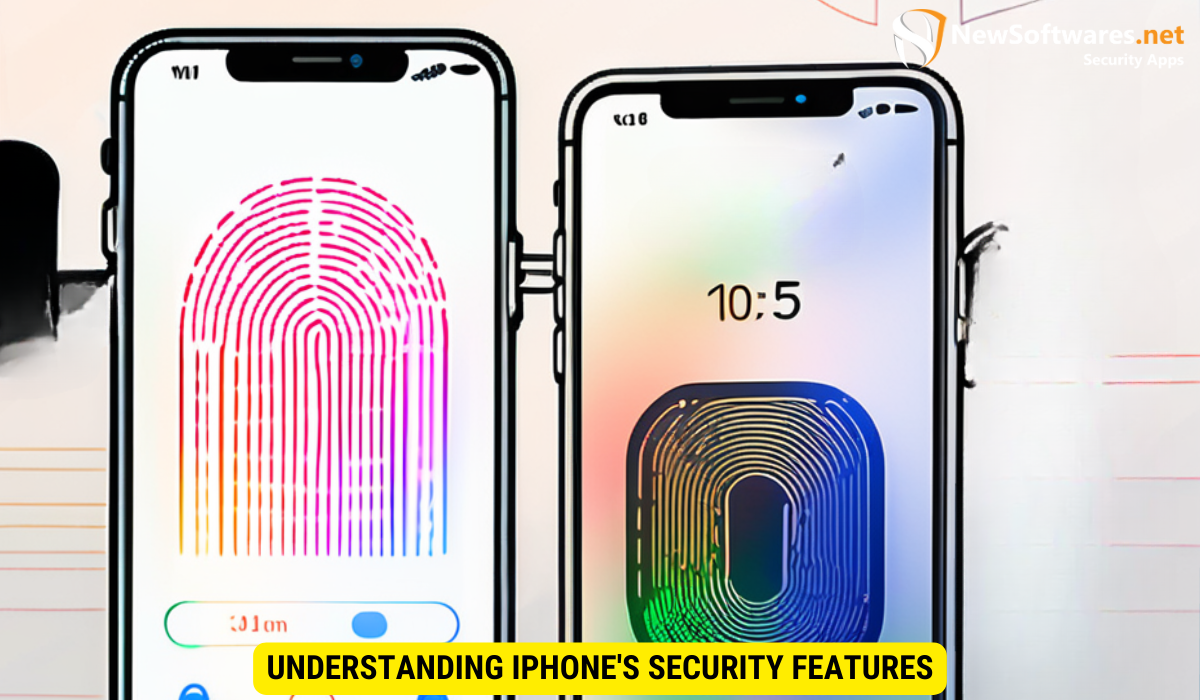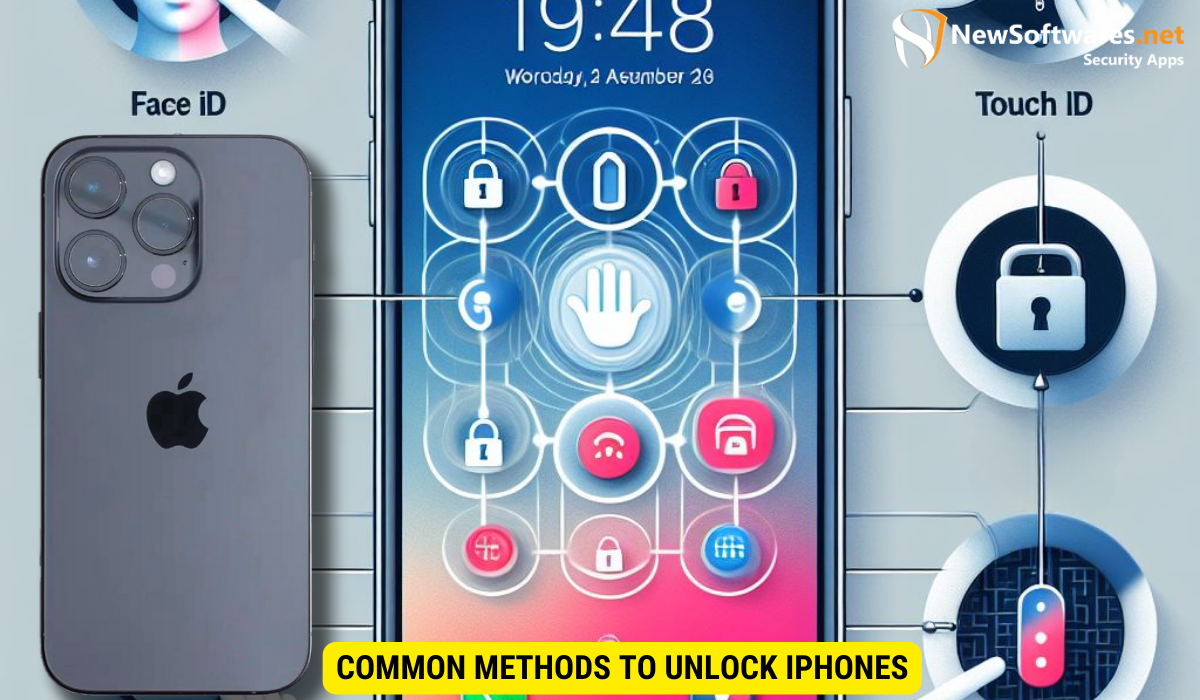Together, we will explore the intricate world of unlocking iPhones that are password locked. iPhones have become an essential part of our lives, storing valuable information and personal data. However, there may be instances when accessing this information becomes challenging due to forgotten passwords or other security concerns. This is where the art of unlocking iPhones comes into play. Let’s delve into this topic further.
Understanding iPhone’s Security Features

Before we dive into unlocking techniques, it is essential to grasp the security features ingrained in iPhones. Apple has invested significant efforts in ensuring the security of its devices, protecting user data from unauthorized access. By understanding these features, you will gain valuable insights into the complexity of unlocking iPhones.
The iPhone’s lock system is crucial in safeguarding your data from unauthorized users. It acts as the first line of defense against potential threats. This robust system ensures that only the rightful owner can access the device, maintaining a secure environment for your sensitive information.
In addition to the lock system, iPhones also employ sophisticated encryption and data protection mechanisms. These further enhance the security framework, making it even more challenging for intruders to gain access to your personal data.
Furthermore, Apple regularly updates its security protocols to stay ahead of emerging threats and vulnerabilities. These updates not only strengthen the existing security features but also introduce new layers of protection to combat evolving cybersecurity risks. By keeping your iPhone software up to date, you ensure that you benefit from the latest security enhancements developed by Apple’s team of experts.
Another critical aspect of iPhone security is the biometric authentication technology integrated into newer models. Features such as Face ID and Touch ID provide an additional level of security by requiring unique biometric data to unlock the device. This advanced technology adds a sophisticated layer of protection, making it significantly harder for unauthorized users to bypass the security measures.
Legal and Ethical Considerations of Unlocking iPhones
When contemplating unlocking an iPhone, it is of utmost importance to consider the legal and ethical implications associated with such actions. Understanding the boundaries set by the law and ethical standards will help you make informed decisions.
Unlocking an iPhone goes beyond just the technical aspects; it delves into a realm where legal and ethical considerations intersect. It is a process that requires careful thought and consideration to ensure that you are not only complying with the law but also upholding ethical standards.
When is Unlocking an iPhone Legal?
Unlocking an iPhone is considered legal in specific circumstances. For instance, if you own the device and are attempting to unlock it for personal use or to switch carriers, it may be deemed legal. However, it is crucial to research your local laws and regulations as they may vary from one jurisdiction to another.
Moreover, legality can also be influenced by the method used to unlock the iPhone. Some methods may be legal in one region but illegal in another. It is essential to be well-informed about the legal landscape to avoid any potential legal repercussions.
Ethical Implications of Bypassing iPhone Security
Bypassing the iPhone security measures poses ethical concerns that should not be taken lightly. The act of unlocking iPhones without proper authorization may infringe upon the user’s privacy rights and compromise the confidentiality of their data. Consider the ethical implications carefully before proceeding with any form of unlocking.
Furthermore, ethical considerations extend to the broader implications of unlocking iPhones. It raises questions about digital rights, data protection, and the balance between individual privacy and security. By reflecting on these ethical dilemmas, you can navigate the complex landscape of iPhone unlocking with a deeper understanding of the ethical responsibilities involved.
Common Methods to Unlock iPhones

Now that we have covered the legal and ethical aspects, let’s explore some common methods used to unlock iPhones. It is essential to note that not all methods may work for every situation, and some may carry risks or even void the device’s warranty.
Unlocking an iPhone can be a complex process, and it often requires a good understanding of the device’s software and security features. While there are various methods available, each comes with its own set of challenges and potential drawbacks. It’s crucial to proceed with caution and be aware of the implications of unlocking your device.
Using iTunes for iPhone Unlocking
iTunes, Apple’s official media player and mobile device management application, can be used to unlock iPhones. By connecting the device to a computer with iTunes installed, you can initiate the unlocking process. However, it is important to remember that this method may not work for all situations, especially if the device is linked to iCloud or has other security features enabled.
When using iTunes for unlocking, it’s essential to ensure that you have a recent backup of your device to prevent data loss. Additionally, the success of this method may vary depending on the iPhone model and its current software version. It’s advisable to research and understand the specific requirements and steps involved in using iTunes for unlocking before proceeding.
Unlocking iPhones with iCloud
Another method to unlock iPhones is through the use of iCloud. If the “Find My iPhone” feature is enabled and the associated iCloud account credentials are known, there is a chance to unlock the device remotely. However, this method may also have limitations, and it is always recommended to consult with Apple or professional services before attempting any unlock.
Unlocking an iPhone using iCloud requires a stable internet connection and access to the iCloud account linked to the device. It’s crucial to verify the authenticity of the iCloud credentials and ensure that the device is not reported as lost or stolen. This method may be suitable for individuals who have forgotten their passcode or are unable to access their device through traditional means. As with any unlocking method, it’s important to proceed with caution and consider seeking professional assistance if needed.
Potential Risks and Consequences of Unlocking iPhones
While unlocking an iPhone may seem like the solution to accessing locked data, it is crucial to be aware of the potential risks and consequences involved.
Security Risks of Unlocked iPhones
Unlocking an iPhone can expose the device to security risks, leaving it vulnerable to various forms of attacks and breaches. By bypassing the built-in security features, you may inadvertently compromise the privacy and integrity of your data. It is essential to weigh the risks carefully before proceeding.
Impact on iPhone’s Warranty and Services
Unlocking an iPhone may have an impact on the device’s warranty and support services. Apple’s warranty typically does not cover any issues arising from unauthorized modifications or alterations to the device’s software or hardware. It is advisable to consult with Apple or authorized service providers to fully understand the potential implications.
Professional Services for iPhone Unlocking
If you find the process of unlocking an iPhone too complex or risky, there are professional services available that specialize in iPhone unlocking. These services offer expertise and experience, ensuring that the unlocking process is carried out efficiently and in accordance with legal and ethical standards.
Choosing a Reliable iPhone Unlocking Service
When selecting a professional iPhone unlocking service, it is essential to research and choose a reliable provider. Look for reputable companies with positive customer reviews and a track record of successful unlocks. It is also crucial to ensure that they operate within legal boundaries to avoid any legal implications.
What to Expect from Professional Unlocking Services
Professional unlocking services will guide you through the unlocking process, ensuring that your device is unlocked safely and securely. They possess the necessary knowledge and tools to tackle various unlocking scenarios, giving you peace of mind throughout the process.
Key Takeaways
Unlocking an iPhone requires careful consideration of the legal, ethical, and security implications involved. Understanding the intricate security features implemented by Apple is essential to grasp the complexity of the unlocking process. While certain methods like using iTunes or iCloud can be attempted, it is crucial to evaluate the potential risks and consequences, as well as the impact on warranty and support services. If unlocking the iPhone yourself seems challenging, professional services are available to assist you in a reliable and secure manner.
FAQs
Is unlocking an iPhone legal?
The legality of unlocking an iPhone can vary depending on local laws and regulations. It may be considered legal under specific circumstances, such as personal use or carrier switching, but it is essential to research your jurisdiction’s laws.
What are the ethical implications of unlocking an iPhone?
Unlocking an iPhone without proper authorization raises ethical concerns, as it may infringe upon privacy rights and compromise the confidentiality of personal data.
Can I unlock my iPhone using iTunes?
iTunes can be used to unlock iPhones in certain situations. However, it may not work for all devices, especially those linked to iCloud or with additional security measures enabled.
What risks are associated with unlocking an iPhone?
Unlocking an iPhone can expose the device to security risks, potentially compromising data privacy and integrity. It is crucial to weigh the risks carefully before proceeding.
Should I use professional unlocking services?
If you find the process challenging or want to ensure a reliable and secure unlocking process, professional services specializing in iPhone unlocking can guide you through the process and provide the necessary expertise.
Conclusion
Unlocking iPhones presents opportunities and challenges for users seeking access to password-protected devices. It is essential to approach this process with caution, considering the legal, ethical, and security factors involved. By understanding the complexities and potential risks, you can make informed decisions and ensure the safety of your data.
